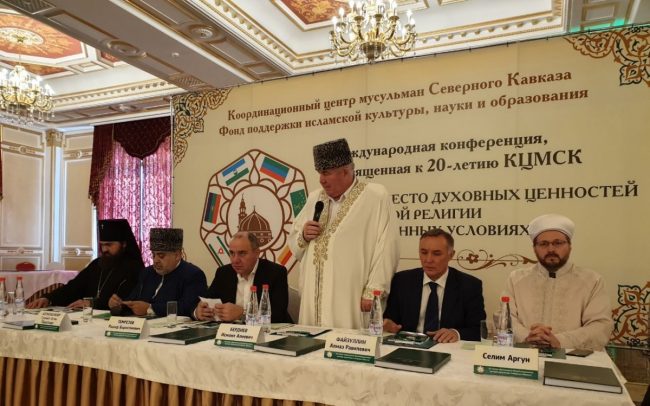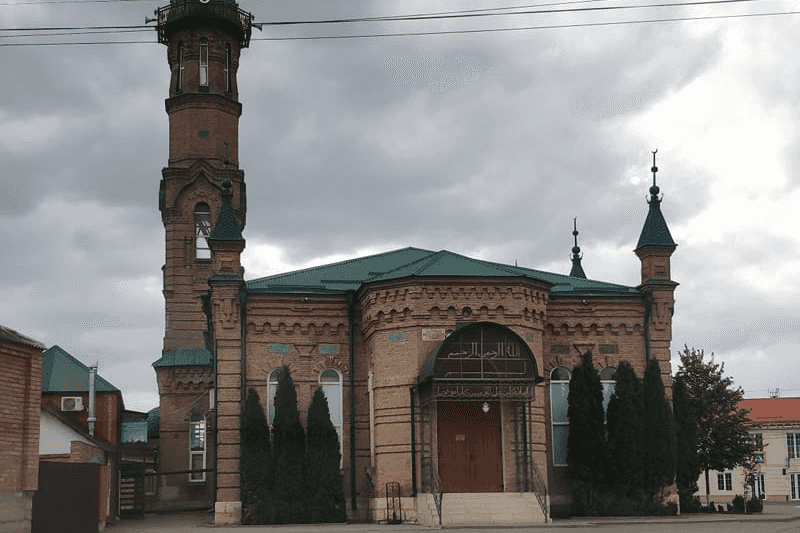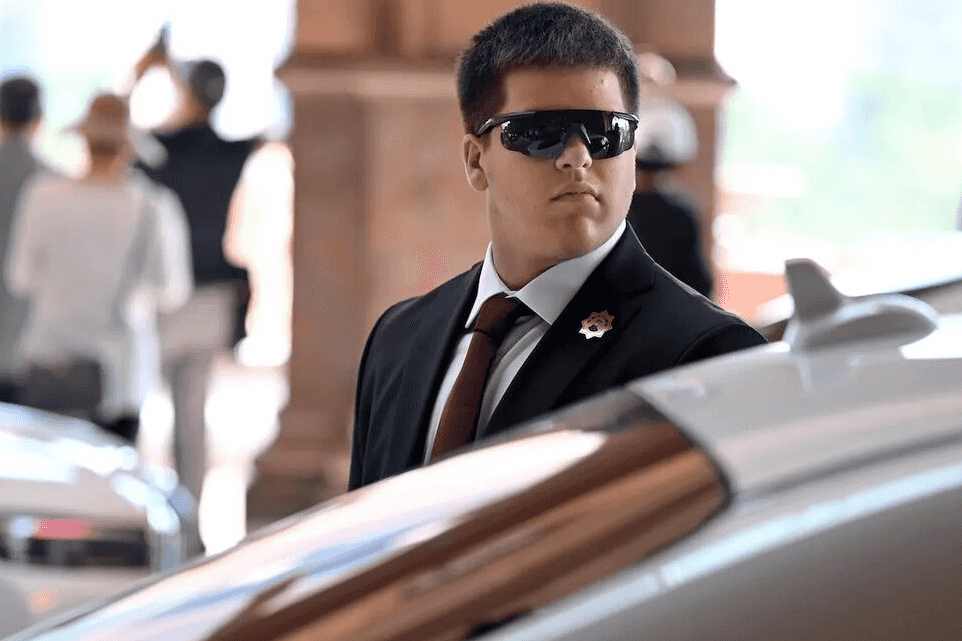

 Ingushetia’s Muftiate was absent on Saturday at a conference of Muslim religious authorities from throughout the Russian North Caucasus, OC Media has learnt. While the Muftiates of all other republics attended, Ingushetia was represented by the state religious authorities, who have been in public conflict with the Mufti since 2015.
Ingushetia’s Muftiate was absent on Saturday at a conference of Muslim religious authorities from throughout the Russian North Caucasus, OC Media has learnt. While the Muftiates of all other republics attended, Ingushetia was represented by the state religious authorities, who have been in public conflict with the Mufti since 2015.
The conference in Cherkessk, the capital of Karachay–Cherkessia, was dedicated to the 20th anniversary of the Coordination Centre for Muslims of the North Caucasus. The centre unites the nine Muftiates of the North Caucasus — the traditional representative bodies of local Muslims — and their heads, the Muftis.
According to their website, the centre’s goal is to help Islamic religious authorities in the North Caucasus protect the interests and rights of Muslims as well as to counter religious extremism.
Ibragim Ibragimov, secretary of the centre’s executive committee, confirmed to OC Media that neither Ingushetia’s Mufti, Isa-Khadzhi Khamkhoyev, nor anyone from the Muftiate was present at the conference, but declined to say the reason why.
Before the conference, Ibragimov told OC Media that the centre sent out invitations to all of the North Caucasus Muftiates without exception, and expected the Ingush Mufti to attend. The Ingush Muftiate has not offered any explanation for their absence, and OC Media failed to reach them for comment.
Ingushetia’s Mufti vs the authorities
Ingush Muslims were instead represented at the conference by Akhmed Eldzherkiyev, the head of Ingushetia’s Department for Religious Affairs — a state body.
Ingushetia’s Mufti, Isa-Khadzhi Khamkhoyev, has been in a high-profile row with the republic’s head, Yunus-Bek Yevkurov, for several years.
After a religious conflict in late 2015 in the village of Nasyr-Kort, Yevkurov accused Khamkhoyev of politicising his sermons.
In February 2016, Khamkhoyev visited neighbouring Chechnya, where he criticised the Ingush authorities for not taking a harder line on ‘Wahhabism’ (referring to Salafism), something the authorities there have done. Relations between Ingushetia and Chechnya’s authorities have broken down in recent years, after a shootout between Chechen and Ingush security forces in 2013 left six Ingush police officers wounded as well as repeated claims on Ingush territories voiced by Chechen officials.
[Read on OC Media: Chechen ‘invasion’ sparks outrage in Ingushetia]
Later in 2016, Yevkurov tried to remove Khamkhoyev from his position and liquidate the Muftiate as a publicly registered organisation, a move blocked by Ingushetia’s Supreme Court.
In May 2018, the Muftiate renounced Yevkurov ‘until he stops his discrimination against the clergy’ in an official document signed by Mufti Isa-Khadzhi Khamkhoyev. In it, Yevkurov is accused of attempting to liquidate the Muftiate, persecuting imams, intimidating their families, closing the Angusht radio station, seizing land in Magas meant for a mosque, and interfering in hajj — the pilgrimage to Mecca.
Yekaterina Sokiryanskaya, a human rights advocate and director of think-tank the Centre for Conflict Analysis and Prevention, was quoted by Caucasian Knot as saying that the Muftiate’s decision was a ‘political’, ‘pre-election’ move, probably addressed to the Kremlin, as the Muftiate is not eager to see Yevkurov appointed for a third term as head.
Problems in the Coordination Centre
The Coordination Centre for Muslims of the North Caucasus, since 2003 headed by the Mufti of Karachay–Cherkessia, Ismail-Khadzhi Berdiyev, has according to former chair of the Carnegie Moscow’s Religion, Society, and Security programme, Aleksey Malashenko, ‘always been fragile’.
In 2012, information circulated online that the Muftiate of Chechnya had withdrawn from the centre. Chechnya’s Mufti, Sultan-Khadzhi Mirzayev, was quoted by Golos Islama as saying this was because the centre had not conducted any meetings ‘for the past nine years’, and its leader did not allow other members to organise any.
In 2017, similar information circulated about Daghestan’s Muftiate. Nezavisimaya Gazeta quoted Roman Silantyev, an expert on Islam and former head of the Interreligious Council of Russia, as saying that ‘the Daghestanis’ patience has come to an end’.
Statements by the head of the Centre, Ismail-Khadzhi Berdiyev, on the need for female circumcision proved controversial for many in Daghestan.
Prior to the conference, Ibragim Mitayev, chief spokesperson for Chechnya’s Muftiate, told OC Media the Muftiate had never left the Coordination Centre, labelling reports to the contrary ‘rumours’.
The Deputy Mufti of Daghestan, Magomed Magomedov, also denied to OC Media reports that Daghestan’s Muftiate had withdrawn from the Coordination Centre.
Ruslan Kurbanov, a senior researcher at the Institute of Oriental Studies at the Russian Academy of Sciences, told Caucasian Knot that the future of the Coordination Centre ‘depends on the state authorities.’ According to him, the authorities need the centre to facilitate communication between different muftiates and the state authorities.







